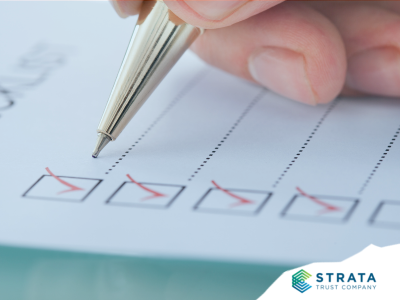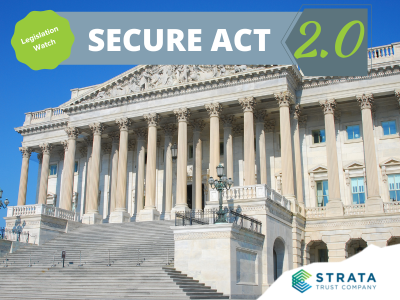A self-directed IRA allows you to invest in almost anything from a local business to a new technology breakthrough like life-saving medical devices. These non-traditional investments are associated with the potential for big returns, but they can also expose you to big risks. As you explore investment options, do your research and remember these tips to help keep your IRA and your assets safe.
1. KEEP AN “ARM’S LENGTH” FROM YOUR INVESTMENTS
Besides a few specific prohibited investments (like life insurance and collectibles), the IRA tax laws forbid certain transactions that result in you or a “disqualified person” benefitting from an investment (other than to grow your IRA assets). Disqualified persons include your spouse, parents, grandparents, children and grandchildren (and their spouses), IRA beneficiary, custodian, and investment advisor. An entity that is owned 50% or more by a disqualified person is also a disqualified “person.” You and your disqualified persons cannot conduct any of the following prohibited transactions:
- Sell an investment to your IRA
- Purchase an investment from your IRA
- Borrow money from your IRA
- Lend money to your IRA
- Provide materials or services to your IRA investment
- Transfer or use IRA assets for your benefit or that of another disqualified person
- Receive payment from any party dealing with a transaction involving the IRA
If you engage in a prohibited transaction, your entire IRA will be disqualified and taxable to you (excluding any basis in your IRA). If you’re under age 59½, the taxable amount is also subject to a 10% early distribution tax. To avoid these tax consequences, it’s important to understand the prohibited transaction rules and avoid any type of investment or transaction that could be perceived as improper.
2. BEWARE OF INVESTMENT SCAMS
According to the SEC, scammers often use online platforms to spread false information or manipulate the markets by stoking a buying or selling craze. Mediums include social media, investment research websites, online investment newsletters, ratings websites, discussion forums, and spam emails. For example, Pump and Dump schemes, Microcap Fraud, Ponzi schemes, and Pre-IPO Investment scams are just a few types of fraud that may seem legitimate but make false or misleading enthusiastic statements to create an attractive investment opportunity. Don’t make investment decisions based solely on information found on social media platforms; you don’t know for sure who you’re dealing with. And don’t let someone else’s timeline or sense of urgency pressure you into investing. Do your due diligence, research the risks associated with a potential investment, and make sure you understand all publicly disclosed information.
Your due diligence tasks should include finding reliable independent research aside from information provided by the investment promoter. Here are some questions from the SEC to help make sure you’re obtaining the type of information you need to properly evaluate an investment opportunity:
- Is this investment product registered with the SEC and my state securities agency?
- How liquid is this investment? How easy would it be to sell if I needed my money right away?
- What are the specific risks associated with this investment? What is the maximum I could lose? What will be the effect of a specific event, like changing interest rates or an economic recession?
- How long has the company (or its management) been in business? Have they ever made money for investors before?
- Can I get the latest reports filed by the company with the SEC or the latest annual report and financial statements?
- Why is this investment suitable for me?
- How will this investment make money? What must happen for this investment to increase in value (e.g., an increase in interest rates, real estate values, or market share)?
- What are the total fees to purchase, maintain, and sell this investment?
See STRATA’s Protect Yourself webpage for more information and links to investor tools.
3. PROTECT YOUR IDENTITY AND YOUR ASSETS
According to the National Council on Identity Theft Protection, identity theft costs totaled $56 million between 2020 and 2022 – impacting 50% of U.S. citizens. Protect your personal information and access to your financial accounts as you’re researching investment options. Be careful sharing your contact information in response to an investment promotion, and never respond to unsolicited emails asking for information. The following security measures are easy to put off but are crucial to defending your identity and your money:
- Create strong, unique passwords. Use different passwords for each separate account as much as possible and change your passwords regularly.
- Maintain your computer’s security. Firewalls, anti-virus, anti-spam, and anti-spyware software should be checked and updated often.
- Avoid public computers and public or unsecured wi-fi connections.
A Custodian’s Limited Role
As a self-directed IRA investor, you are responsible for avoiding prohibited transactions and analyzing the risks associated with your self-directed IRA investments. Be sure to consult your financial or legal advisor if you need assistance researching or evaluating an investment before you direct your IRA custodian to purchase an investment on behalf of your IRA.
As an active member of the Retirement Industry Trust Association (RITA), STRATA Trust Company (STRATA) supports initiatives to help educate investors on how they can better protect their retirement savings against investment fraud and financial scams. STRATA does not investigate the validity of an investment, the background of any investment promoter, or the accuracy of any financial information provided by the investment promoter.
Visit our Security Policy page for an explanation of what STRATA does to protect your information and what you can do to bolster that protection.
Visit our Get to Know Your Custodian page for a breakdown of custodial responsibilities and investor responsibilities.












